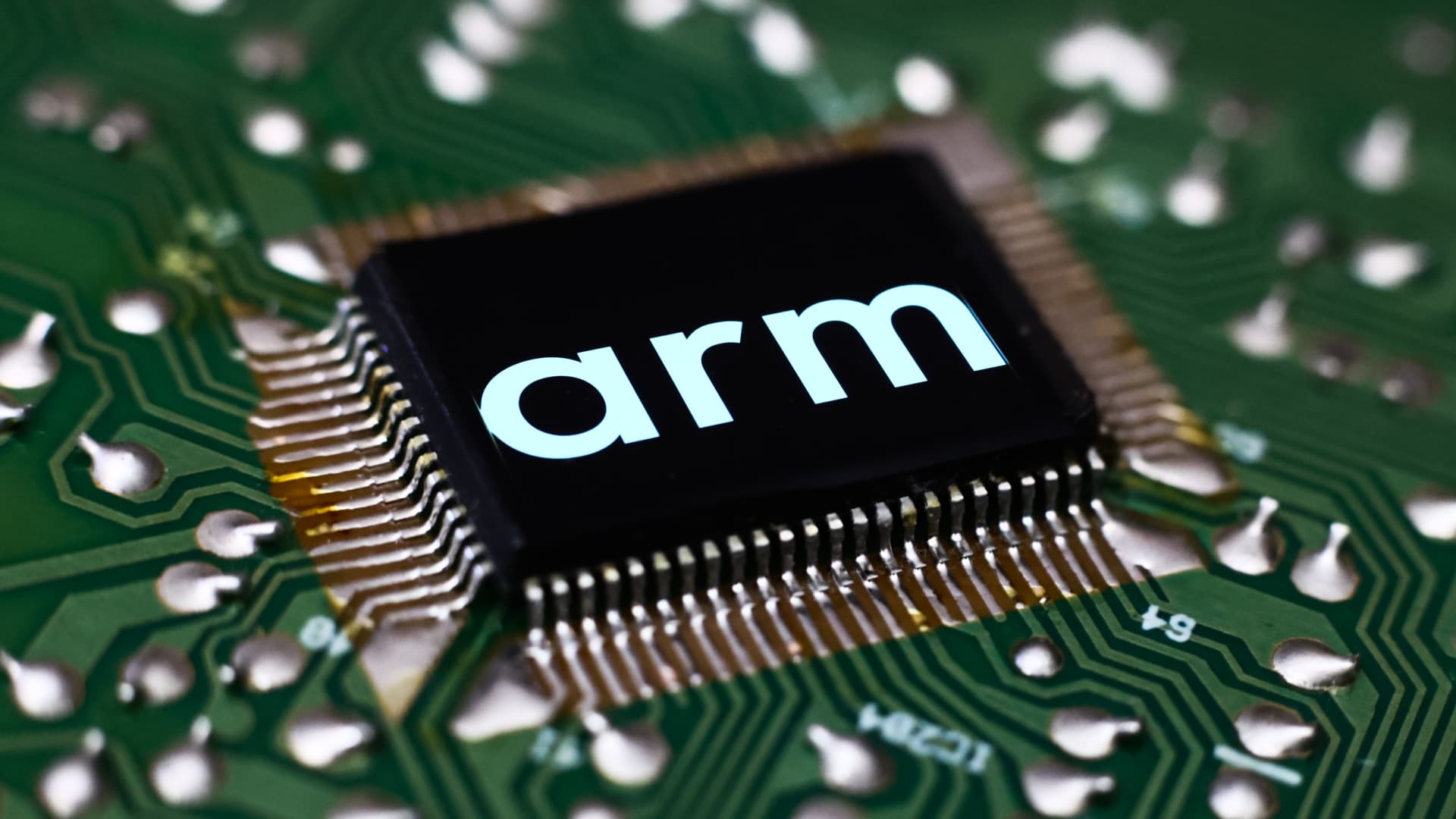Products You May Like
Shares of British chip designer Arm closed down more than 2% on Thursday as lackluster revenue guidance clouded a positive sales quarter driven by demand for artificial intelligence applications.
Arm reported fiscal fourth-quarter revenue of $928 million Wednesday, marking a 47% year-over-year rise.
The performance was driven by Arm’s licensing business, which grew 60% to $414 million in the quarter. The firm cited “multiple high-value license agreements being signed” for AI chips.
Arm’s royalty revenue, meanwhile, grew 37% year over year to $514 million, with the company citing increasing penetration of its recently introduced Armv9-based chips, which have higher margins.
But it was Arm’s guidance that left investors unimpressed. For fiscal 2025, Arm said it expects revenue to come in between $3.8 billion and $4.1 billion. Analysts were expecting revenue of $3.99 billion for the full year, according to LSEG data.
For the 2025 fiscal first quarter — the current quarter — the company said it expects sales of $875 million to $925 million, compared with estimates of $857.5 million.
Citi analysts led by Andrew Gardiner noted that although Arm’s results for the fourth quarter beat expectations for the third straight quarter, the full-year guidance midpoint was slightly below consensus.
However, they stressed the importance of the strength of Arm’s licensing business looking ahead.
“Licensing upside both in F4Q and for FY25, which is being driven by the combination of AI needs and Arm’s provision of higher value v9 and Compute Subsystem solutions, is a positive leading indicator for future royalties,” they wrote in a note Thursday.
“The key for future royalty growth is upside from licensing today,” they added, reiterating their buy rating on the stock.
What is Arm?
Arm is sometimes referred to as the “Switzerland” of the semiconductor industry.
Unlike chipmakers such as Nvidia, which makes and releases its own products commercially, Arm designs the “architectures” upon which chips are built.
It then licenses these designs out to other chip companies such as Qualcomm and Nvidia, charging royalty fees on each sale they make.
The company, founded in Cambridge, England, in 1990, was initially independent and listed in London, before a 2016 deal saw Japanese tech investor SoftBank acquire it for $32 billion.
U.S. name Nvidia subsequently tried to buy the company for $40 billion, but regulators effectively torpedoed the transaction by taking actions to block it over antitrust concerns.
SoftBank floated the company on the Nasdaq in September 2023. Arm’s shares have since more than doubled from its IPO price on the back of seismic demand for chips capable of running powerful generative AI applications such as ChatGPT.
The stock market debut was one of the technology industry’s first high-profile initial public offerings after they effectively ground to a halt in 2022 as higher interest rates knocked investor sentiment.
Correction: This story has been updated to correct the revenue estimates for the 2025 fiscal first quarter.
